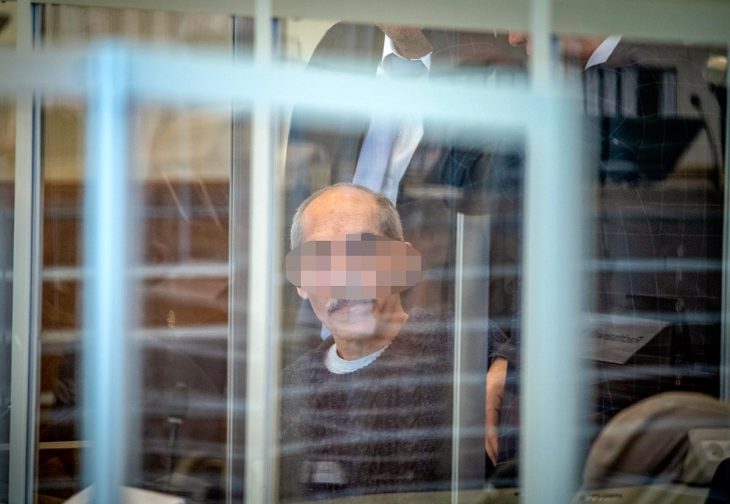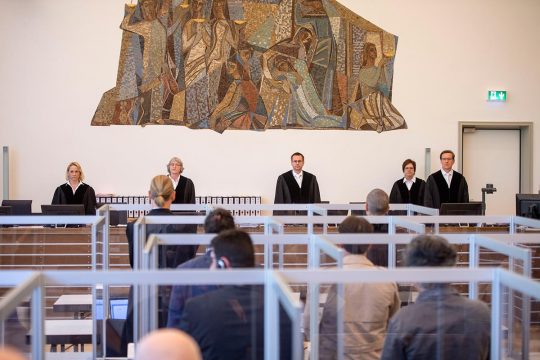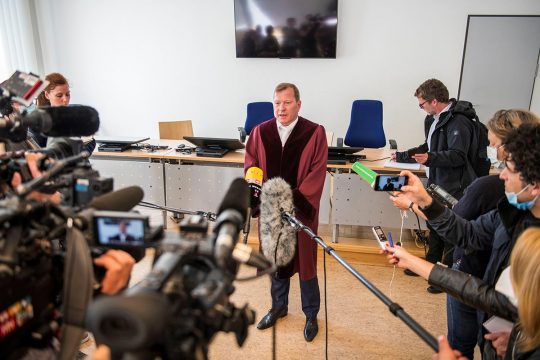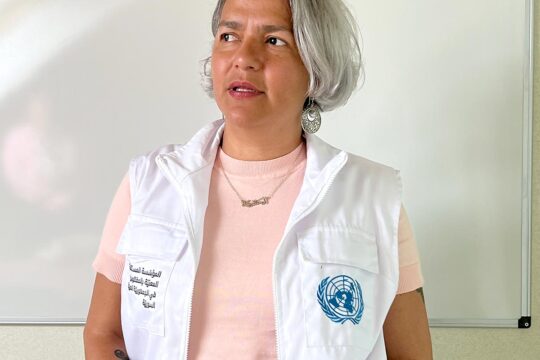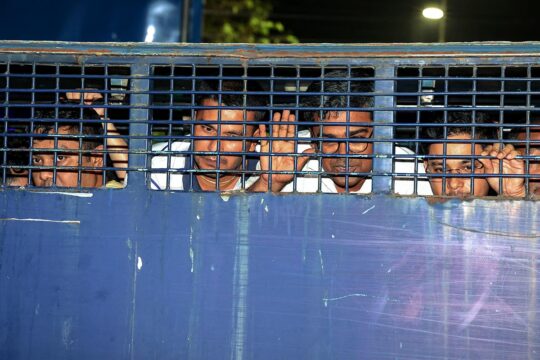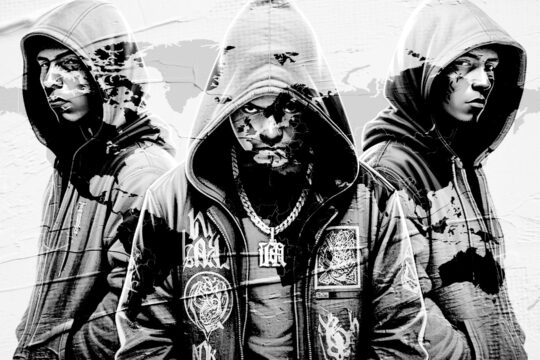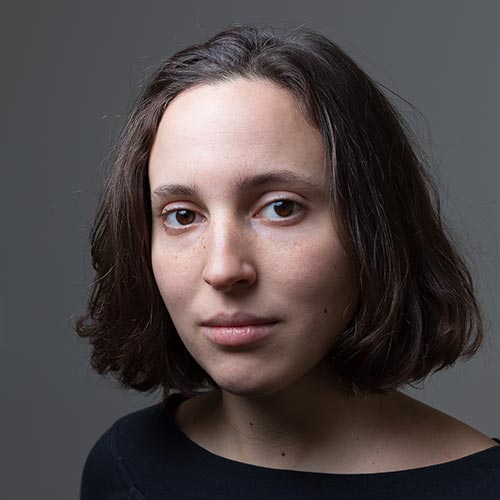According to Anwar Raslan, his encounters with Syrian inmates were limited to drinking coffee, small talking about the diversity of Arabic culture and facilitating their release. On May 18, the former intelligence officer’s lawyer read out his testimony in the Higher Regional Court of Koblenz. It took almost two hours, making it double the length of the indictment, which had accused him of 4000 cases of torture, 58 killings and two cases of rape or sexual assault allegedly committed in Syria between April 2011 and September 2012. Raslan’s statement told a different story – one where most of the crimes did not happen or were not his responsibility.
Five days in court have passed since the beginning of the first trial worldwide dealing with state torture in Syria. In the German city of Koblenz, Anwar Raslan and Eyad al-Gharib are accused of crimes against humanity; the former of committing them as a responsible officer in the General Secret Service’s Branch 251 in Damascus, the latter of aiding and abetting them by arresting protesters and taking them to the detention center often referred to as “Al-Khatib”. Since the first day of the trial, Raslan has observed calmly, silently. He never hid his face from the cameras, never flinched when harrowing details of torture were being discussed. Now, his statement reinforced the image of a confident man who is not ready to regret or take any blame.
Rape? “I cannot imagine that happened in Branch 251”
Raslan is not the kind of guy who takes the back seat, his statement suggested. In 1992 he applied for police training with the Interior Ministry. “I became a lieutenant and was the second best in my year”, he recounted. As one of the three best graduates he was referred to the directorate of state security and started his career in Branch 251 at the age of 32. After some more steps up the ladder he finally became the department’s head of investigations in 2008. “Until 2011 I identified with the Syrian legal and political system”, Raslan claimed. He did not make any mention of the severe human rights violations committed by Syria’s former president Hafez al-Assad in the 1980s and 90s, and by his son Bashar since the early 2000s.
“The ceilings in our cells are too high to hang prisoners from them”, Raslan explained instead, referring to the torture method “Shabah” (“ghost”), where prisoners are hung from their wrists, just able to touch the ground on tiptoes, for hours or days on end. This method has been mentioned by prisoners in Syria since the 80s. “I can hardly imagine that someone would be beaten in this position”, said the former officer with more than 25 years experience in Syria’s secret service. Regarding the deaths of inmates, he claimed that only one person died in Branch 251 in 2011, adding that there was not enough space for corpses in the Al-Khatib detention center, contradicting his co-accused who said he once saw ten dead bodies being carried out of the prison. As to the accusation of rape by one of the plaintiffs, Raslan wants to assure that “this is against our values, our religion and our morals. I cannot imagine that happened in Branch 251.” Other details provided by witnesses, such as the numbering of cells, the existence of metal chains or the size of his office are equally untrue, said Raslan.
Blaming his superiors
In his statement, the defendant took time to deny every single witness’s account that was brought against him in the indictment. Some of them he has simply never heard of. Others he met for a peaceful and cordial conversation in his office – he was even surprised that one of them did not thank him later. The majority, he claimed, were not arrested under his authority. How is that possible if he was head of investigations during the time of the alleged crimes? Raslan explained that because he personally facilitated the release of so many prisoners and because he was a Sunni Muslim, he had attracted the suspicions of his boss Tawfik Younis and of the notorious Subdivision 40, a unit controlled by the Alawite president Bashar al-Assad’s cousin Hafez Makhlouf. “[Makhlouf] was above the law and his unit acted autonomously,” said Raslan. “They reported directly to Mohammed Dib Zeitoun, the head of the Syrian General Security Directorate.” After having lost most of his authority, Raslan claimed, he merely wrote reports, but carried out no further interrogations himself. Eventually, he said, he was stripped of all his responsibilities in Branch 251 just after the uprising started in Syria in 2011.
“I never arbitrarily ordered the arrest of anyone. I did not order torture or support it”, Raslan said near the end of his statement. “I became a refugee because I did not accept what was happening in Syria. I did not commit the crimes I am accused of.” He then listed potential witnesses who believe in his loyalty to the Syrian uprising and could testify on his behalf. Their numbers are saved in his mobile phone: a journalist who was arrested and, thanks to Raslan, released; a son-in-law who helped him organise his desertion; a former colleague who knows they could have done nothing to stop Makhlouf’s henchmen; an opposition member he worked with in Geneva, and many more. The latter serves as a reminder that after defecting, Raslan joined the Syrian opposition in Jordan and even travelled to the peace negotiations in Geneva as part of their delegation. Regime or opposition, Raslan remained at the top of his class. It is unknown if the court will summon the 25 witnesses who could testify on Raslan’s behalf. “They are all members of the opposition and the revolution”, the defendant added. “They live outside of Syria and would take no risks by vouching for me.”
Victims’ representatives are unconvinced
Outside the courtroom, Raslan’s statement did not convince those behind the accusations against him. “Anwar Raslan is obviously trying to downplay his role by saying he obeyed orders and that Subdivision 40, led by Hafez Makhlouf, exercised the factual power in the al-Khatib detention center”, said in a press release after the hearing Wolfgang Kaleck, general secretary of the European Center for Constitutional and Human Rights (ECCHR), a German NGO that triggered the legal case against Raslan and that represents 17 plaintiffs. “That is common practice in such trials. But it is invalid, especially because he allegedly issued, not merely received and followed, orders in his department. We do not believe he played a minor role.” That Raslan denied certain facts about the prison conditions and torture methods seemed almost silly to Syrian human rights lawyer Joumana Seif. “I know people whose lives were destroyed just by seeing what happened in Syrian prisons, without being tortured themselves. Raslan’s word stands against the word of so many witnesses.” Given the amount of detail Raslan put into his statement, Seif said she expected a lengthy trial.


